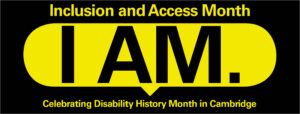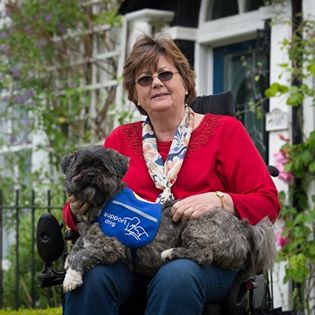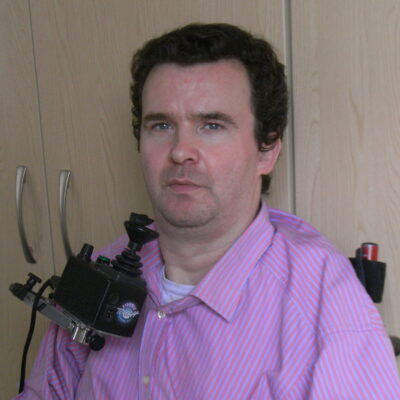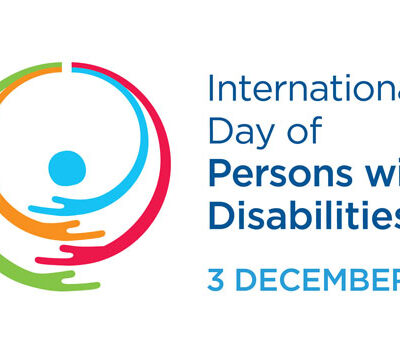Search by topic
- archaeology
- Building of Local Interest
- chapel
- charity
- church
- crime
- dressmaker
- fire
- Great Eastern Railway
- Listed building
- Mapping Relief
- medieval
- oral history
- poverty
- Public House
- Religious House
- Roman
- scholar
- school
- Then and Now
- tudor
- women
- work
- world war one
- world war two
Search by text
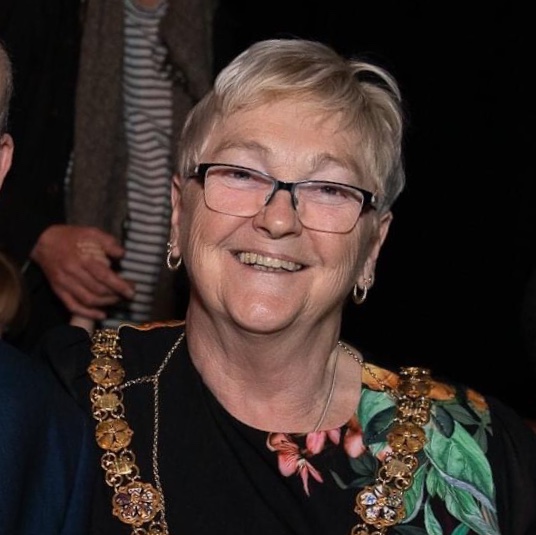 Gerri Bird
Gerri BirdCouncillor Gerri Bird
Hospitalised with polio and loosing her family as a child - Gerri went on to become a councillor, Cambridge Mayor, and one of the most influential disabled people in the UK.
This is her story
Gerri was born on 11th November, 1955 in a Magdalene Home in Cork, Republic of Ireland. At the age of 10 months, she contracted polio and was admitted to hospital where she remained until she was seven years old.
Upon leaving hospital, it wasn’t possible to find her mother, as she had been deported to England. The nuns, however, managed eventually to trace her living in Cambridge, so Gerri was brought over to the City by the nuns. Unfortunately the reunion didn’t work out, and Gerri was taken to the Midfield Children’s Home in Oakington for fostering.
The Church of Our Lady and the English Martyrs in Hills Road, Cambridge, issued a notice that a disabled child was in need of a home, and a couple came forward to foster Gerri. They formally adopted her when she was 12 years of age and, for the first time, she was able to enter main stream school, St. Bede’s School, Birdwood Road, Cambridge, where she learned to read and write. Gerri left school at the age of 15, after just three years formal schooling.
And then her life changed. She had her two wonderful daughters who have given her eight grandchildren – and she is now a great-grandmother, too. Gerri did eventually trace her biological family through the internet, unfortunately her mother had died just six months earlier, but she discovered four brothers and a sister living in New Zealand, Australia and Canada – all of whom she has since met. She has also found, and visited, some of her biological family in Ireland.
Gerri has been a Cambridge City Councillor since 2011 and has served as Mayor of Cambridge for two terms, in 2014 – 2015 and 2019 – 2020. She has been a constant campaigner for the rights of disabled people in order to bring about change and independence. She worked for Disability Cambridgeshire and has been involved with a many organisations, giving support and advice to disabled people for over 39 years, and is the Cambridge City Council Disability Lead.
“As a councillor, Gerri has driven many campaigns, particularly focused on issues of disability rights and access. She was central to a campaign to save a set of ground floor public toilets from relocation to a higher, less accessible floor. Her successful petition was signed by 11,000 people. The refurbished, ground floor the toilets opened just days after Gerri became Mayor and she was able to cut the ribbon herself.
Gerri is never afraid to take on a challenge and has swum competitively, jumped out of an aeroplane and even won trophies for banger-racing.”
Quoted from the Shaw Trust Disability Power 100 list 2019: in which Gerri was named one on the influential disabled people in the UK.
I AM Cambridge: Inclusion and Access in Cambridge
Disability History Month: Gathering, sharing, celebrating, campaigning and archiving experiences of inclusion and accessibility in Cambridge. Raising awareness to bring about change through stories, memories, history and the arts.
Projects
Contribute
Do you have any information about the people or places in this article? If so, then please let us know using the Contact page or by emailing capturingcambridge@
Licence
This work is licensed under CC BY-NC-SA 4.0






